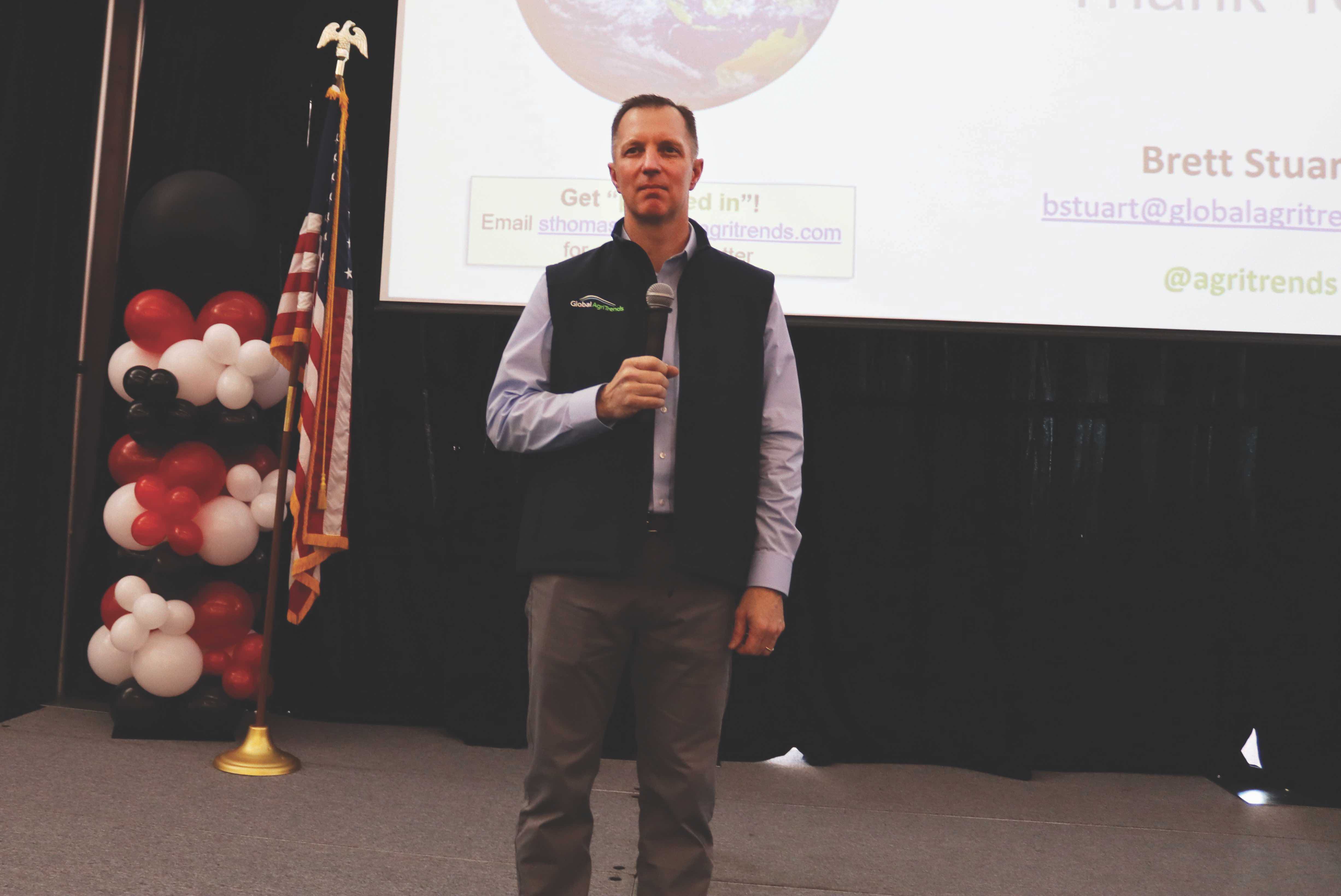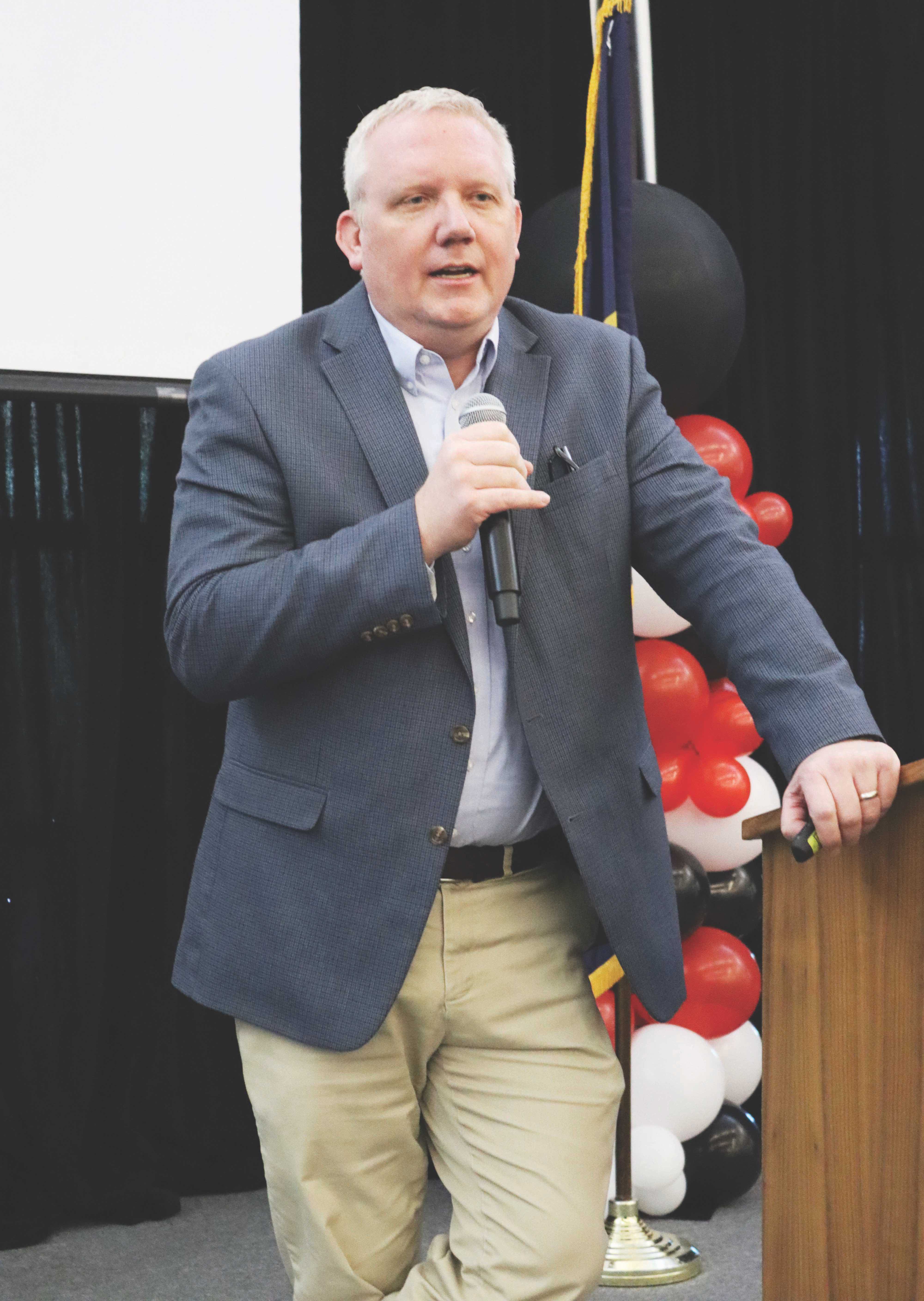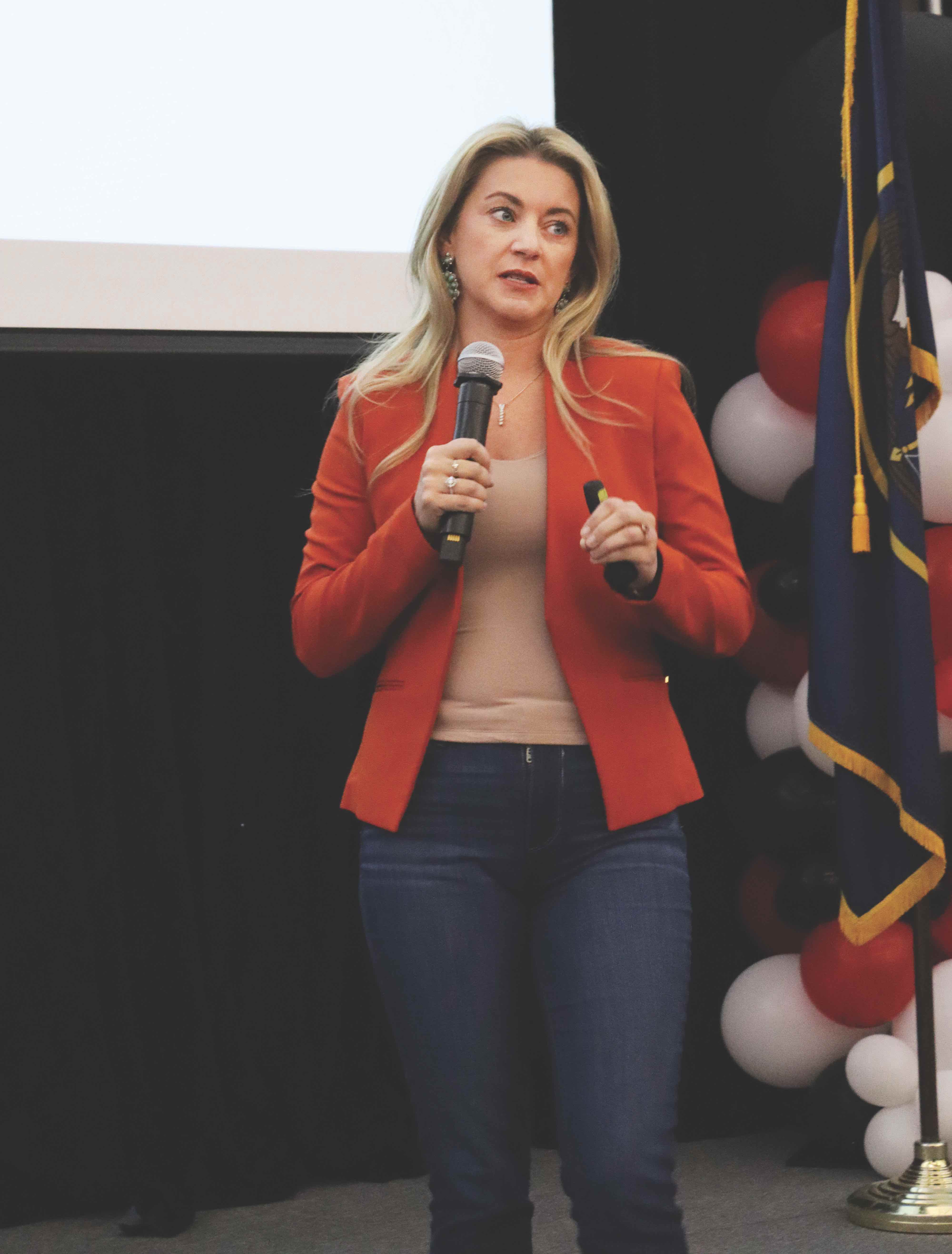Utah Farm Bureau Leaders Gather in St. George for Leadership Conference
Author
Published
2/21/2023
On the heels of the Utah Hay & Forage Symposium, Utah Farm Bureau leaders gathered in St. George in late January to learn about current issues impacting agriculture and the legislature, to learn about ways to increase leadership skills and effectiveness of County Farm Bureaus, and to build and strengthen relationships with each other.
“I thought it was just awesome to meet with one another,” said Ron Gibson, President of the Utah Farm Bureau Federation. “Agriculture is much stronger when we’re all working together. I think we can get to feeling at times that we’re outnumbered, but rallying with leaders from throughout Utah was really strengthening.”
Utah Farm Bureau President Ron Gibson opened the conference and talked about some of the challenges facing agriculture, namely the drought and related legislation being talked about during the legislative session. He pointed out the blessing of having, so far, an incredible water year, and how it is still imperative for agriculture to build connections and help highlight the importance of a productive, local agriculture industry. Board member Tyson Roberts also talked about his experiences connecting with lawmakers and helped those attending see how easy it was to participate in the session both in-person and virtually.
Brett Stuart from Global AgriTrends then talked about some of the large-scale trends impacting agriculture and future markets, specifically related to China and the rising demand for beef. Raised on a farm in Utah, Stuart is a sought-after analyst and projected great opportunities ahead for agriculture, as the growing middle class in developing nations demands more protein. Highlighting a strong correlation between meat and poultry consumption and world GDP, Stuart talked about a project protein deficit over the year 10 years as drought has impacted production across the U.S.
 Brett Stuart talks to Farm Bureau members about global trends affecting agriculture, especially from China.
Brett Stuart talks to Farm Bureau members about global trends affecting agriculture, especially from China.Speaking specifically of China, Stuart praised the Phase 1 Trade Agreement with China as "one of the best ever", specifying imports of American agriculture increasing in that nation – specifically around beef.
Dr. Brian Steed, Executive Director of the Janet Quinney Lawson Institute for Land, Water and Air at Utah State University then spoke with Farm Bureau members about some of the issues surrounding Utah’s drought – both political and natural. Praising farmers as being “adaptive” and “natural problem solvers that care about the promise of America”, Steed highlighted some of the political challenges involved with the Great Salt Lake and its potential impact on agriculture – specifically related to air and water quality as well as habitat for birds and insects.

Dr. Brian Steed talks about water issues in Utah and potential problems.
Lastly, keynote speaker Tara Vander Dussen, also known on social media as the “New Mexico Milkmaid” talked about her experiences being an online advocate for agriculture. With her experience growing up and currently working on her family’s dairy in eastern New Mexico, as well as being an environmental consultant and ag advocate, Vander Dussen talked about filling the gap of information when it comes to agriculture.
“People love innovation, but hate change,” Vander Dussen said. “How many of us buy a new phone, and then as soon as we get it, move things around so that the look and our apps look exactly how our old phone looked?”
Rather than responding in a defensive way to questions about agriculture, production practices, and water use, Vander Dussen encouraged farmers and ranchers to “stop playing defense” and make connections with people in our communities and online.

Tara Vander Dussen spoke about engaging with people online to show the realities of agriculture.
“The costs of not connecting are too high. We don’t have to ‘educate’ people. We just need to connect and share experiences with the. Just share your ‘every day’ with them,” Vander Dussen said. “When it is personal, people feel invested. Then you can connect more with facts. People often refuse facts that don’t confirm their existing beliefs, but you can help separate that with your own personal story.”
Throughout the conference, farmers and ranchers were both able to build skills needed for leadership, as well as some of the nuts & bolts of issues confronting many in attendance, including mental health, animal rights activists, consumer trends, how to stay up on local & statewide legislative processes, social media, pesticide application safety, the art of influencing local advocacy, and the Young Farmers & Ranchers program organized a local tour at the conclusion of the conference.
The conference will take a hiatus next year, in an effort to encourage Utah Farm Bureau members to attend and support the American Farm Bureau's national convention in Salt Lake City, which will take place during the same time period.
Want more news on this topic? Farm Bureau members may subscribe for a free email news service, featuring the farm and rural topics that interest them most!
